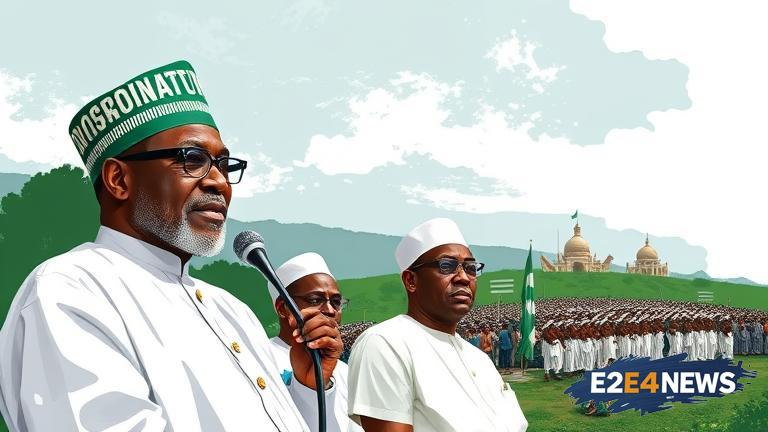The recent news surrounding President Tinubu’s 2027 ambitions has sparked a wave of interest in Nigeria’s political landscape. With the current administration’s focus on economic growth and development, many are eager to see how President Tinubu plans to build upon the foundations laid by his predecessor, President Buhari. President Buhari’s presidency, which spanned from 2015 to 2023, was marked by significant challenges, including the fight against Boko Haram and the economic downturn caused by the COVID-19 pandemic. Despite these obstacles, President Buhari’s administration made notable strides in areas such as infrastructure development and anti-corruption efforts. As President Tinubu looks to the future, he will need to balance the competing demands of various stakeholders, including the Nigerian people, the international community, and the country’s political elite. The 2027 elections are expected to be highly contested, with several prominent candidates already declaring their intentions to run. President Tinubu’s campaign will likely focus on his economic credentials and his ability to drive growth and development in Nigeria. However, he will also need to address concerns around security, corruption, and governance, which have been persistent challenges for the country. The legacy of President Buhari’s administration will also play a significant role in shaping the narrative around the 2027 elections. While some have praised President Buhari’s efforts to tackle corruption and improve the country’s infrastructure, others have criticized his handling of the economy and his response to security threats. As the nation looks to the future, it is clear that President Tinubu will need to navigate a complex web of competing interests and priorities. The international community will also be watching closely, as Nigeria plays an increasingly important role in regional and global affairs. The country’s economic growth and development will be critical to the success of the African Continental Free Trade Area (AfCFTA), which aims to create a single market for goods and services across the continent. In addition to economic development, President Tinubu will also need to prioritize security and governance reforms. The ongoing fight against Boko Haram and other extremist groups will require sustained attention and resources, while efforts to improve governance and reduce corruption will be critical to restoring trust in government. The Nigerian people will be expecting tangible results from the new administration, including improvements in areas such as healthcare, education, and infrastructure. As the 2027 elections approach, it is clear that President Tinubu will face significant challenges in his bid to succeed. However, with a strong campaign and a clear vision for the future, he may be able to overcome these obstacles and emerge victorious. The coming months will be critical in shaping the outcome of the elections, as candidates and parties begin to mobilize their supporters and articulate their visions for the country. In the end, the success of President Tinubu’s administration will depend on his ability to deliver on his promises and address the pressing challenges facing the nation. The world will be watching as Nigeria navigates this critical period in its history, and the outcome of the 2027 elections will have significant implications for the country’s future. As the nation reflects on President Buhari’s legacy, it is clear that his presidency has had a lasting impact on Nigeria’s development. While there have been challenges and controversies, President Buhari’s commitment to fighting corruption and improving governance has been widely praised. As President Tinubu looks to the future, he will need to build upon these foundations and drive further progress in areas such as economic development, security, and governance. The Nigerian people will be expecting a new era of leadership and a renewed focus on the country’s development, and it remains to be seen whether President Tinubu will be able to deliver on these expectations. With the 2027 elections on the horizon, the stage is set for a highly contested and potentially transformative period in Nigerian politics.
